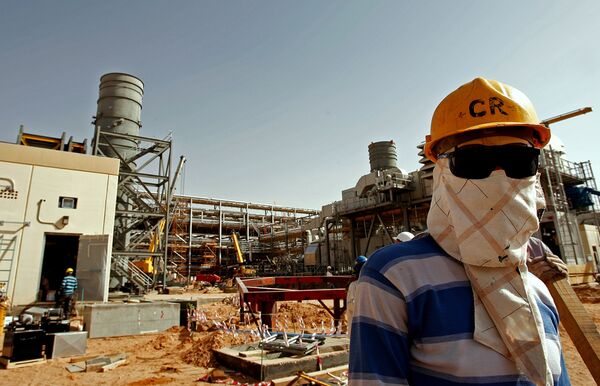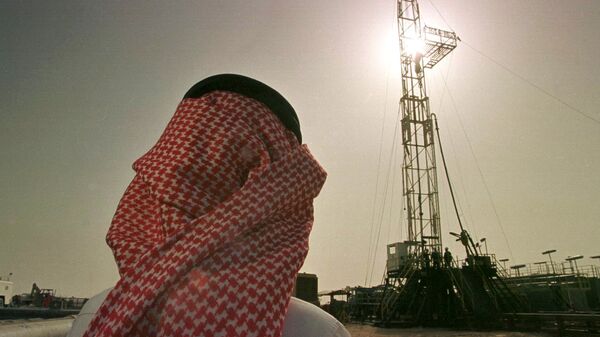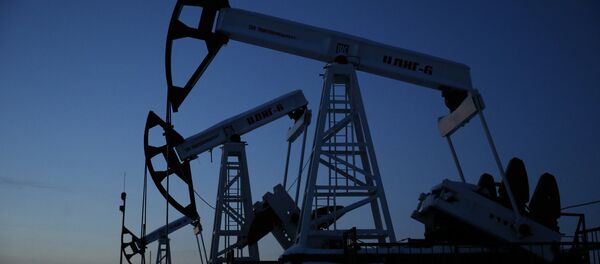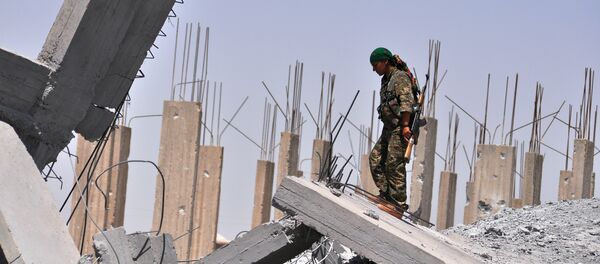Saudi aggression against Yemen and the much discussed Saudi-Turkish initiative to kick off a ground operation in Syria are clear signs that Riyadh is in trouble.
"Saudi Arabia's ever increasingly hostile stance toward neighbors may not be as secular as some have suggested. Given the nature of the country's oil reserves, and almost unlimited production for decades, it's possible the Saudis could simply be running out of gas," US political analyst Phil Butler writes in his article for New Eastern Outlook.
"New projects like the lavish architectural creations looming in the deserts have halted, the Saudis are not happy people like they were," Butler points out.
What makes matters even more complicated is that the Ghawar Field, the world's largest oil field, is running out after about 65 years of continuous production and the Saudi Aramco is due to start the CO2-EOR process to extract the last of the field's oil, the analyst stresses.
"Once this happens, Saudi Arabia will return to an almost medieval third world status. Either this or those billions horded by Saudi princes will have to be used to placate or to subdue the people," he remarks.
And it's not a mere speculation.
Back in 2012, an analytical report by Citigroup Inc. stated that Saudi Arabia risks becoming an oil importer by 2030.
"If Saudi Arabian oil consumption grows in line with peak power demand, the country could be a net oil importer by 2030," Citigroup analyst Heidy Rehman wrote, as quoted by Bloomberg.

"Furthermore, a recent WikiLeaks revelation cited a warning from a senior Saudi government oil executive telling that the kingdom's crude oil reserves may have been overstated by as much as 300bn barrels, or by nearly 40%!" the American political analyst underscores.
Butler refers to a phenomenon called "peak oil." According to M. King Hubbert‘s theory, peak oil is the point in time when the maximum rate of extraction of petroleum is reached and the crude capacity will only decline.
Whether one likes it or not, peak oil has been reached, the analyst underscores.
However, while the global oil reserves are decreasing steadily, Riyadh has been pumping its crude faster than anyone.
And here is the root cause of Saudi Arabia's warmongering. To maintain its status quo, the Saudi kingdom has established an alliance with Turkey, planning to seize Syria and Iraq's oil fields.
"Where Americans' interests are concerned, while President Obama has been parlaying trendy terms like 'renewable energy' and his supposed climate change agenda, the fact is petroleum still powers 96% of all transportation in America," Butler emphasizes.
To paraphrase the old song, oil makes the world go round…
The question then arises, whether we are on the doorstep of new "energy wars."





